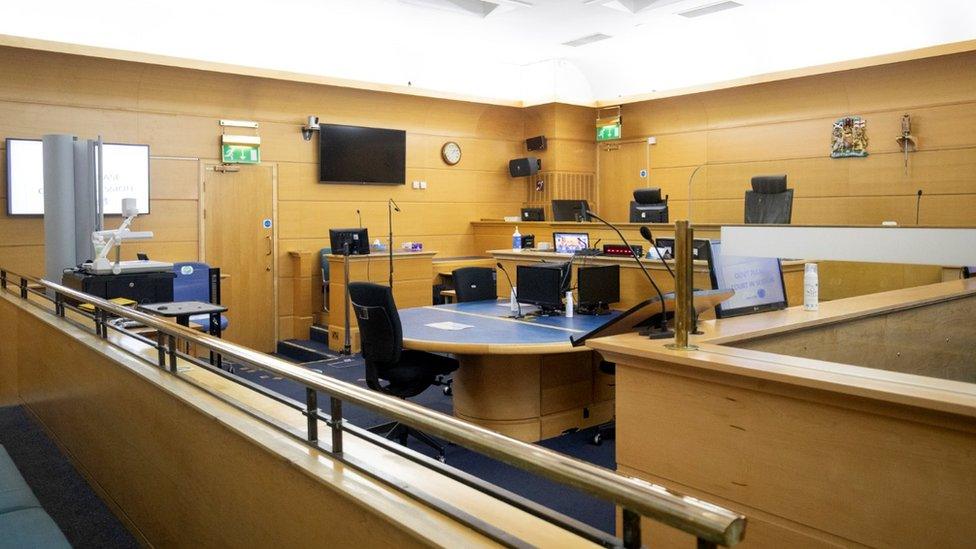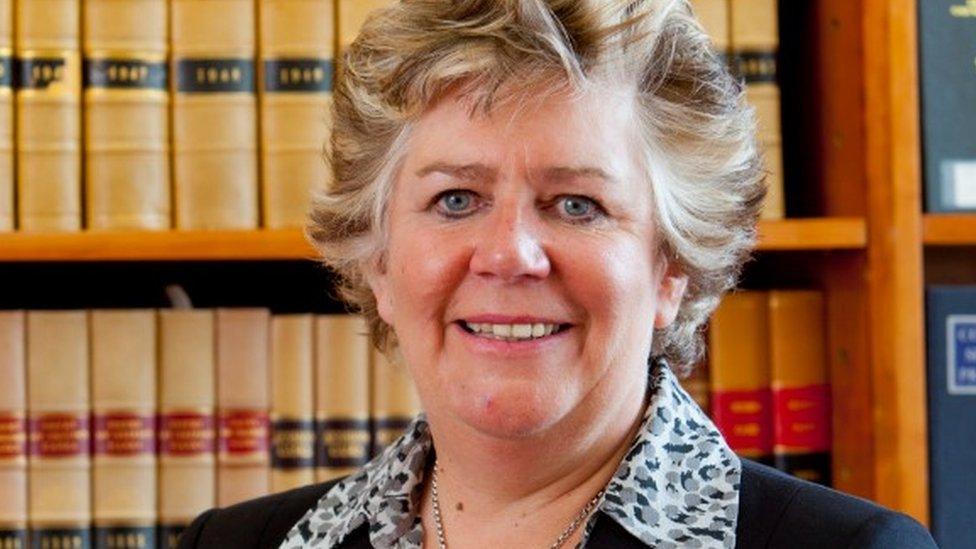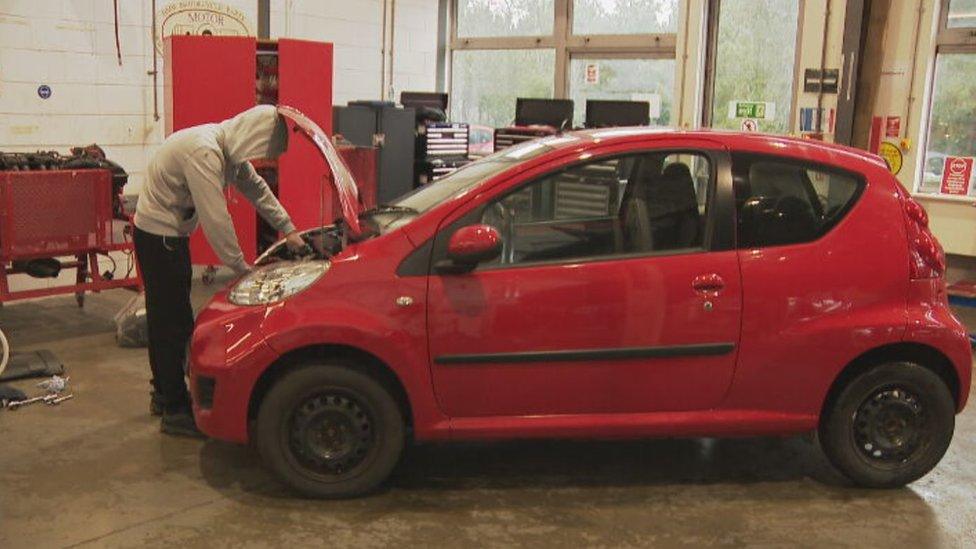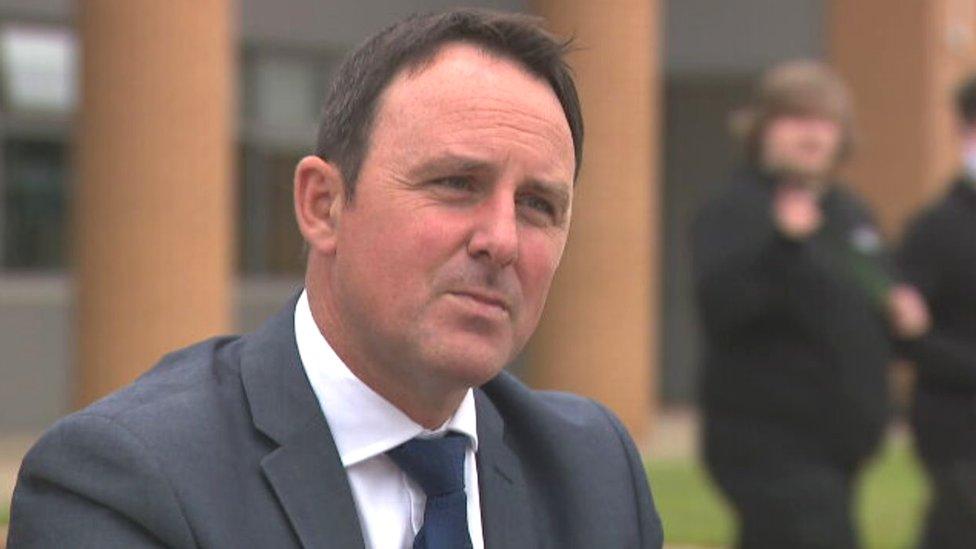Scottish judges to consider rehabilitation first when sentencing young people
- Published

Scottish courts could be required to make rehabilitation rather than punishment a primary consideration when sentencing young people in future.
The Scottish Sentencing Council is recommending an "individualistic approach" for under 25s which takes into account their life experiences.
It argues that the proposed changes will help reduce reoffending.
The council said its decision was based on scientific evidence that the brain is not fully developed below that age.
The Sentencing Young People guideline, external will be submitted to the High Court for approval this month and follows a public consultation on the issue last year.

Lady Dorrian said it was hoped the guideline would reduce reoffending
Lady Dorrian, Lord Justice Clerk and chairwoman of the council, said: "The sentencing of young people is a complex and challenging exercise which requires a more individualistic approach, with a need to take the unique personal circumstances of the young person and their intellectual and emotional maturity into account.
"The guideline explains this and sets out the approach courts should adopt when carrying out that exercise.
"The views expressed in the consultation echo those expressed by members of the public in independent research that rehabilitation should be a primary consideration when sentencing a young person.
"The council's hope and expectation is that through greater emphasis on rehabilitation, encouraging the use of review hearings, such as for those carrying out unpaid work, and increased use of the children's hearings system for those under 18, the guideline will bring long-term social and economic benefits by promoting reduced reoffending."
'Appropriate sentence'
Subject to the High Court's approval, the guideline will apply to the sentencing of all those who are under the age of 25 at the time of their conviction.
The guidance gives more detail on how the assessment of a young person's maturity has a bearing on culpability, and gives more clarity on how the impact on victims is to be taken in account.
It suggests factors common to many young people who commit offences, such as childhood trauma, should be considered.
However, it makes it clear that the full range of sentencing options will remain open to courts when sentencing a young person.
Lady Dorrian said: "The weight of the evidence on brain development, together with how this can be affected by factors such as trauma or adverse childhood experiences, has persuaded us that a more individualistic approach to the sentencing of those under 25 is necessary and appropriate in order to support rehabilitation and help to reduce reoffending.
"Courts will consider these factors while also taking account of the harm caused to the victim, before arriving at an appropriate sentence."

'I want to stay out of bother'

One young man, who asked not to be identified, told the BBC that a rehabilitation programme had helped him. He is now doing a practical skills course.
"I'm in a better place than I was a few months ago," he said.
When he was not in the programme, he said he would end up drinking.
"I'm not getting up to as much," he said. He hoped the programme would keep him on the right path.
"I don't want to be at court... this is good. Better. You're getting something out of it, instead of being in a cell or on a tag.
"I didn't have a clue what I was going to do before this. I thought I'd be going back to jail. It [seemed] inevitable.
He added: "This keeps the heid straight... I want to stay out of bother."


Iain Smith said the new guidelines represented "huge progress"
Iain Smith, a criminal defence lawyer, said he thought the new guidelines represented "huge progress".
He told the BBC that the proposals should not be viewed as "soft" justice, but rather as "smart" justice because in the long term these changes would result in fewer people being victims of crime.
Judges would require training on the science of trauma but, he said, it would allow them to see the same people in a different light.
Mr Smith added: "We can't punish people out of trauma. We can't punish people out of addiction."
Victim Support Scotland said it was keen to see a significant investment in rehabilitative programmes to make sure children and young people who harm others do not go on to commit further crimes.
It said regardless of the age of the perpetrator, victims of all ages "deserve to have the information and support available to them in order to plan for their safety and security, including if someone is undergoing efforts to be rehabilitated and supported within the community".